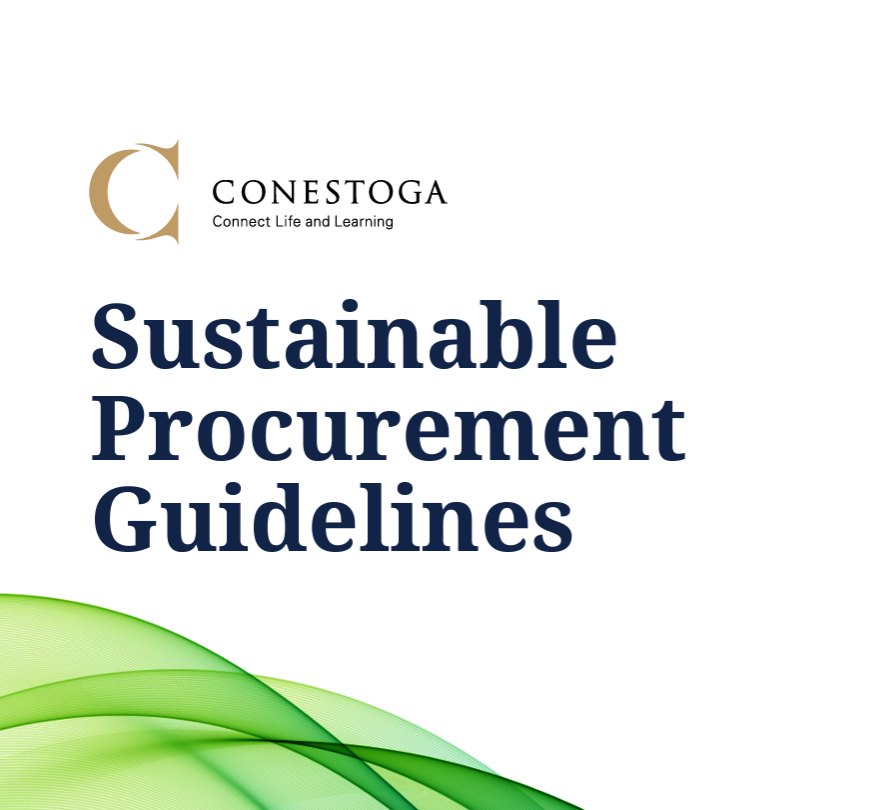New sustainable procurement guidelines are available for Conestoga employees to provide helpful tips when looking to purchase goods and services at the college. Developed by Procurement and Contract Services in collaboration with the School of Business, the guidelines support Conestoga’s commitment to sustainability.

New sustainable procurement guidelines are available for Conestoga employees to provide helpful tips when looking to purchase goods and services at the college.
“The guidelines have been created to kickstart the journey of implementing a sustainable procurement program at the college,” said Perian Tebbutt, director of Procurement and Contract Services.
The department will also offer assistance in ensuring what’s procured meets the immediate and long-term needs for the best overall value with minimum environmental impact and endeavour to purchase and promote the use of environmentally and socially preferable products.
“Procurement plays a key role in achieving sustainable purchasing by aligning the procurement process with sustainable vendors and supporting the college's reputation in sustainability.”
Michael Quartermain, a professor in the School of Business who also worked on developing the guidelines, said sustainable purchasing is important to all organizations. Beyond the environmental imperative and social responsibility, there is a well-documented business case for sustainability to attract top talent and students, to cut costs and reduce risk, and to build brand and intangible value.
“Simply put, sustainability is good business and offers the promise of a more prosperous and viable future,” Quartermain said.
The procurement team plans to compile a list of sustainable suppliers that can be consulted when considering more conscientious options. Several variables need to be weighed to make environmentally friendly choices that also deliver value for money.
Not just the price tag, but the total cost of ownership over the lifespan of the product must be considered to make an informed decision. That total cost compares what a product costs outright to purchase plus its long-term value related to the ongoing and indirect costs such as maintenance, repair and insurance, licensing, and end-of-life value.
Tebbutt said the guidelines are connected to the overall Conestoga sustainability plan now being developed under the leadership of project manager and sustainability consultant Laura Matheson.
Sustainable procurement has far-reaching benefits for the environment and also the organization incorporating these practices, Matheson said.
“Purchasing decisions may have significant direct and indirect sustainability impacts. Once it's been determined that there are no pre-existing products available to borrow or use that can fill the need, integrating sustainable procurement practices supports organizational efficiency and transparency, risk reduction, financial savings, and can reduce negative environmental and social impacts within and beyond the campus, through the supply chain.”
Conestoga’s sustainability plan - started in 2022 and on track to be completed this year - will outline strategies to infuse sustainability principles into academic programs, research endeavours, operational procedures and governance.
“Employees have an integral role to play in purchasing, and we hope these guidelines can support and empower sustainable choices,” Matheson said. “While released as a guideline, in alignment with our forthcoming sustainability plan, in time our goal is to integrate sustainable procurement more formally through Conestoga's policies and procedures.”
Find out more at Policies and Procedures, under procurement and contract services.
